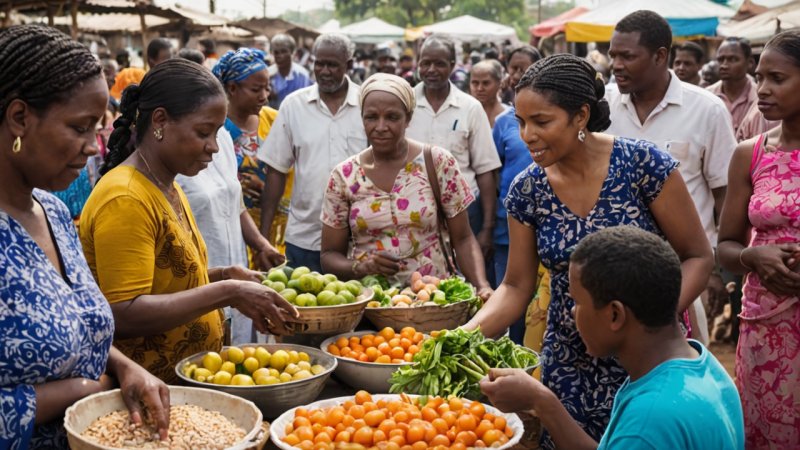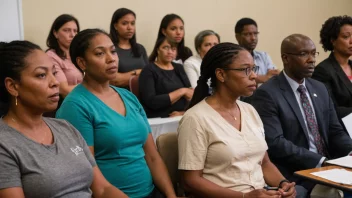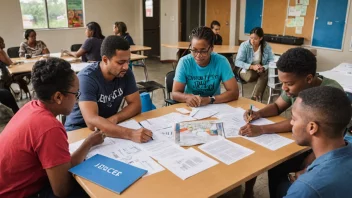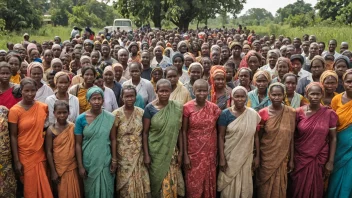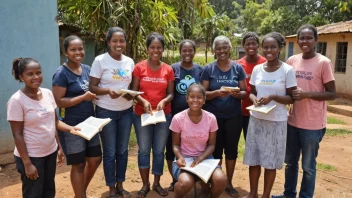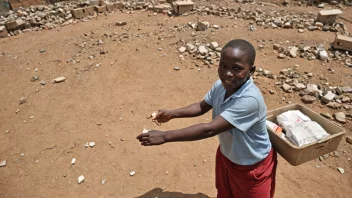Poverty is a complex issue that affects millions of people worldwide, and addressing it requires a multifaceted approach that empowers communities to take charge of their own destinies. Community-based strategies not only foster resilience but also promote sustainable development by leveraging local resources and knowledge. Here are five impactful ways communities can tackle poverty effectively.
1. Strengthening Local Economies
One of the most effective ways to combat poverty is by enhancing local economies. This can be achieved through:
- Supporting Small Businesses: Encouraging the establishment and growth of local businesses can create jobs and stimulate economic activity.
- Promoting Local Markets: Organizing farmers' markets or craft fairs can help local producers sell their goods directly to consumers, keeping profits within the community.
- Microfinance Initiatives: Providing small loans or financial training can empower individuals to start their own businesses, fostering entrepreneurship.
2. Enhancing Education and Training
Education is a powerful tool for breaking the cycle of poverty. Communities can focus on:
- Community Learning Centers: Establishing centers that offer free or affordable classes on literacy, vocational skills, and financial literacy can equip individuals with essential knowledge.
- After-School Programs: Creating programs for children can ensure they receive additional support and opportunities to learn, which can improve their future prospects.
- Partnerships with Local Schools: Collaborating with schools to provide resources and support can enhance the quality of education and accessibility for all children.
3. Improving Health and Wellbeing
Health is a crucial aspect of poverty alleviation. Communities can improve health outcomes by:
- Establishing Health Clinics: Creating accessible clinics offering basic healthcare services can ensure that community members receive necessary medical attention.
- Health Education Programs: Providing workshops on nutrition, hygiene, and preventive health can empower individuals to make informed health choices.
- Support Groups: Facilitating support groups for mental health and wellness can provide a space for individuals to share experiences and seek help.
4. Fostering Social Cohesion
Building strong, cohesive communities can play a significant role in poverty alleviation. This can be achieved through:
- Community Events: Organizing events that bring people together can strengthen relationships and foster a sense of belonging.
- Volunteer Initiatives: Encouraging residents to volunteer their time and skills can build community spirit and address local needs.
- Conflict Resolution Programs: Providing training in conflict resolution can help address and mitigate tensions within the community, promoting harmony.
5. Advocating for Policy Changes
Communities can amplify their voices by advocating for policy changes that address systemic issues contributing to poverty. This includes:
- Engaging in Local Governance: Encouraging community members to participate in local government meetings can ensure their needs and concerns are heard.
- Building Coalitions: Forming coalitions with other organizations can strengthen advocacy efforts and increase impact.
- Public Awareness Campaigns: Raising awareness about poverty-related issues can mobilize support and influence policy decisions.
In conclusion, community-based approaches to tackling poverty are essential for creating sustainable change. By strengthening local economies, enhancing education, improving health, fostering social cohesion, and advocating for policy changes, communities can take significant steps towards alleviating poverty. Each individual has the power to contribute to these efforts, making a meaningful difference in their own lives and the lives of others.
